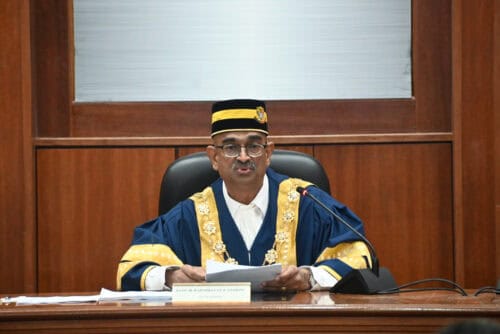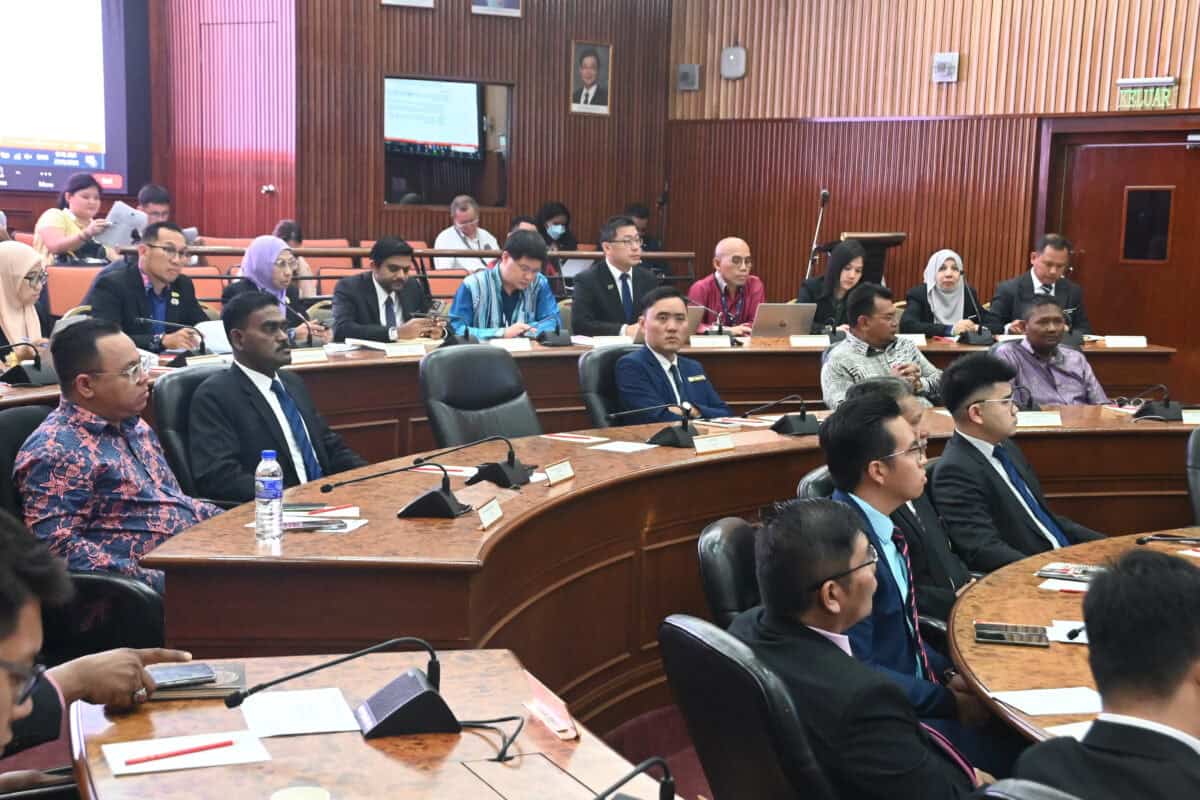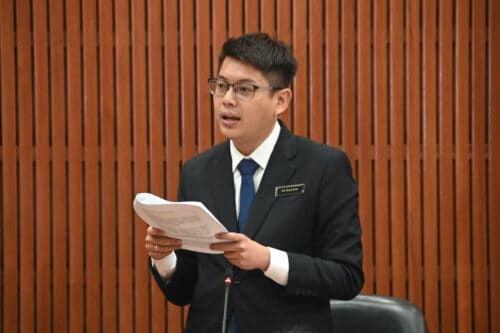PENANG Island City Council (MBPP) mayor Datuk A. Rajendran has urged every Penangite to make the waste separation at source initiative, which will be revived next month, a success.
He highlighted that the life span of the landfill in Pulau Burung is expected to last only until 2036 if no action is taken now to manage the generated solid waste.

“The waste separation at source initiative will not only help reduce the waste sent to landfills but also contribute to the country’s goal of achieving a green and carbon-neutral agenda.
“It can also reduce the risk of disease spread and lower waste management and cleaning costs,” Rajendran said in his speech during the MBPP monthly meeting at City Hall in Esplanade today.
The waste separation at source initiative was announced in 2016 and enforced on June 1, 2017. However, its implementation was disrupted due to the Covid-19 pandemic.
Rajendran highlighted that the state of Penang produces approximately 2,000 tons of solid waste daily, with an average of 1.11kg of waste per capita per day. For the island itself, solid waste generation is 800 tons per day, averaging 1.01kg per capita per day.
Although the solid waste recycling rate in the island reached 41.78% in 2023, higher than the national average of 35.36%, Rajendran said he believes there is still room for improvement.

“To ensure the success of this initiative, MBPP has and will continue to implement various education and awareness programmes.
“So far, MBPP has held five Town Hall sessions and press conferences, 18 briefings, and numerous meetings and focus group discussions with MPKK, the public, schools, joint management bodies and management corporations, hospitals, hotels, and educational institutions where the response has been very positive. These efforts will continue this year.
“MBPP is also collaborating with the Penang Green Council to achieve this effort as PGC has been a partner since its establishment,” Rajendran explained.
He added that MBPP and Petronas have launched a pilot programme to collect used cooking oil, which will be converted to sustainable aviation fuel and biodiesel.
Through this initiative, MBPP hopes to address the improper disposal of used cooking oil, which is often carelessly dumped into drains, sinks, and drainage systems, clogging water channels and polluting the environment.
According to a 2020 pollution study, Rajendran said each household uses an average of 2 kilogrammes of cooking oil per month, and it is believed that 45% of the used cooking oil is currently disposed of improperly.
He said the Medan Renong Food Court will be the pilot project for collecting used cooking oil produced by the vendors there. Petronas will purchase this used cooking oil at RM3 per kilogramme compared to the market price of raw cooking oil at between RM6 and RM7 per kilogramme. The return for used cooking oil is quite lucrative, up to 50% of the original purchase price.
Petronas has two used cooking oil collection centres for residents in the island, namely the gas stations in Paya Terubong and Jalan Dato Ismail Hashim, where collection is done twice a month currently. If this initiative is well received, it will be expanded to include other Petronas gas stations and increase the frequency of collections.
According to Rajendran, recycling centres have been prepared and some have already started operating.
MBPP has also prepared several locations for E-waste recycling centres, including Midland Park, New World Park, Setia Spice, Straits Quay, Tanjong Bunga Market, IJM Udini Square, Mount Erskine, Auto Mall Persiaran Karpal Singh, and the latest at Taman Kejiranan Desa Mawar.
For any inquiries regarding the waste segregation at source initiative, please contact MBPP at 010-4537454 (Mr Taufik Junik, message during office hours only) or email [email protected]. For outside office hours, the MBPP hotline can be reached at 04-2637637 or 04-2637000. A QR code for registration of the used cooking oil collection programmed with Petronas is provided.

During the meeting, MBPP councillor Lee Seng Hwai proposed that a new department called the Transport Department be established to ensure MBPP’s goals align with the state government’s aspiration to strengthen public transport alternatives.
He said the Kuala Lumpur City Hall and Shah Alam City Council have already established their respective Transport Department, responsible for all aspects encompassing alternative transportation modes such as the Pedestrian Pathway Master Plan and the Micromobility Master Plan.
Lee also suggested that existing bicycle lanes in Penang need to be safer and protected to further encourage the public to use bicycles as a mode of transportation.
Story by K.H. Ong
Pix by Alissala Thian

